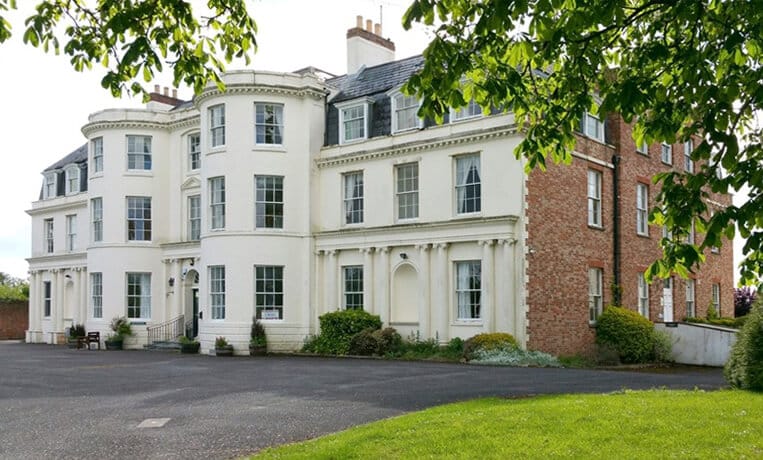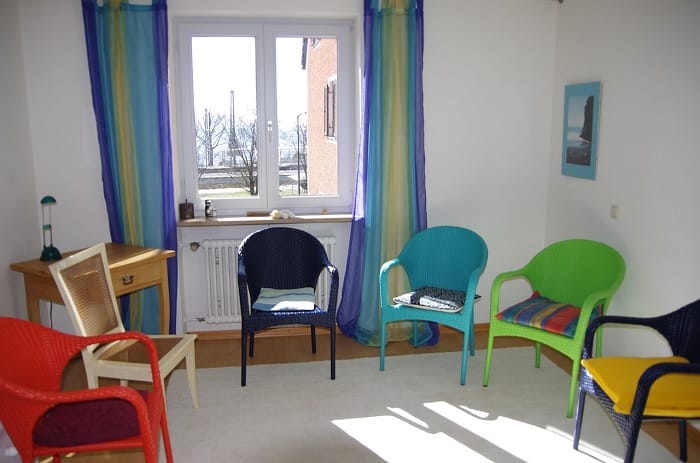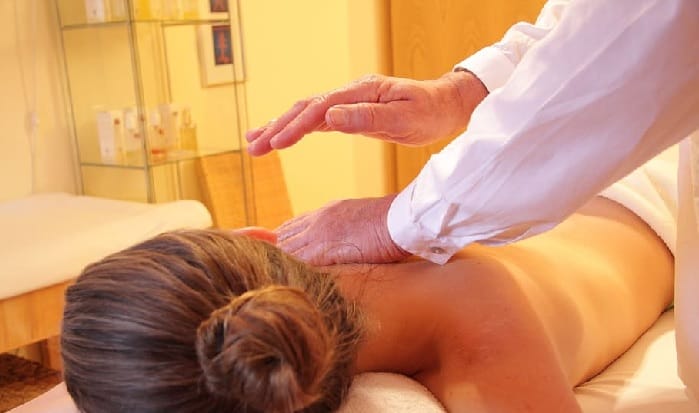Addiction is a seriously concerning issue in West Sussex, not just for adults but for children as well. This is why drug and alcohol rehab is so important.
These numbers only represent the very tip of the iceberg regarding addiction treatment and drug and alcohol rehab needs, which only worsened during the COVID-19 crisis.
Is your life falling into chaos due to drug addiction or alcohol addiction? Have things got out of hand? It may be time to get help.
Rehab 4 Addiction is on hand to assist you.
We offer a range of drug rehab and alcohol rehab options and medically-assisted detox programmes for a wide range of addictions [1] in West Sussex and near West Sussex.
If you are ready to take back control of your life and submit to excellent person-centred care, [2] then our drug and alcohol rehab facilities are the right place for you.
Rehab 4 Addiction offers a variety of drug and alcohol rehab centres in South East England, including London, Surrey, Berkshire, Buckinghamshire, Kent, East Sussex, West Sussex, Hampshire, Oxfordshire, and Brighton.
To find out more about rehab in West Sussex, call 0800 140 4690.

It can often be difficult to determine the difference between moderate drug and alcohol use and full-on addiction. [3]
In general, an individual is recommended to seek drug and alcohol rehab or other medical help for their substance use if they:
For more information about your suitability for drug and alcohol rehab in West Sussex, call our team today on 0800 140 4690

Drug and alcohol rehabilitation in West Sussex and near West Sussex falls into two broad categories:
Residential rehab treatment means you live within the treatment centre in West Sussex whilst you participate in your recovery programme.
Outpatient rehab treatment involves going to a drug and alcohol rehab centre during the day and returning home in the evening.
To find out more about rehab in West Sussex, call 0800 140 4690.

Residential drug and alcohol rehab treatment is one option for tackling drug and alcohol addiction.
This is because it removes you from triggers and makes relapse less likely.
We want you to be in full possession of the facts about inpatient drug and alcohol rehab in West Sussex or near West Sussex.
To find out more details about your inpatient treatment options, see the table below:
For more information about inpatient drug and alcohol rehab treatment in West Sussex, call our team today on 0800 140 4690

Although residential rehab in West Sussex is the most popular option, outpatient rehab treatment is still worth considering.
It may be better for those with commitments they cannot leave behind, and those who cannot attend drug and alcohol rehab clinics full-time.
To find out more about rehab in West Sussex, call 0800 140 4690.
Below we have outlined the main benefits of outpatient alcohol rehab in West Sussex:
Below, we list several drug and alcohol rehabs in West Sussex:

Interventions are a great way of nudging a friend or loved one in the right direction in terms of seeking medical help for their addiction before rehab.
In many cases, those who need help are too resistant or uncertain to seek it for themselves, so it is common for those around them to help by stepping in and drawing attention to the problem at hand.
In a rehab intervention, the friends and family of an addicted individual come together to express their concerns relating to excessive substance use.
Attendees are encouraged to share their own feelings and experiences, [29] and the intention is to make an individual see the damage they are doing without causing them to feel attacked.
This then allows them to attend rehab, having admitted that there’s a problem.
To find out more about rehab in West Sussex, call 0800 140 4690.
A supportive tone should be maintained at all times as this approach is more likely to convince your loved one that getting help is the right thing to do.
Avoid language that could make them feel like they are being forced into alcohol and drug rehab in West Sussex or near West Sussex.
To assist in this, it is common for an intervention specialist to be invited along to monitor and guide the conversation so that the event remains productive and effective.
For advice and guidance about hosting a rehab intervention in West Sussex, call us today on 0800 140 4690

The price of a stay at a drug and alcohol rehab centre in West Sussex depends entirely on the kind of programme an individual chooses to treat themselves with.
The general prices are as follows:
You can learn more about the cost of rehab here.
To find out more about rehab in West Sussex, call 0800 140 4690.

Individuals have a great deal of choice when it comes to what route they wish to take for their recovery.
They have the option to pursue private rehabilitation in West Sussex or near West Sussex, but what are the differences between this option and the more conventional publicly provided rehab programmes?
Below we’ve listed a few of the positives and negatives of going down the council-funded rehab route. [30]
To find out more about rehab in West Sussex, call 0800 140 4690.

Within the field of addiction recovery, it is unanimously agreed amongst experts that rehab is the most effective method for treating substance abuse. However, this does not mean that it is the only option that individuals have.
For some, undergoing rehab treatment might not be feasible in their current situation. It can be of huge help, therefore, to explore some of the alternatives to rehab and explore how effective they can be.
We outline four of these alternatives to residential rehab below:
Within Alcoholics Anonymous [53] and Narcotics Anonymous [54] and Cocaine Anonymous, [55] individuals attend meetings with other addiction sufferers to discuss and work through the obstacles posed by the condition.
Led by a group leader, these sessions can explore different experiences and emotions associated with alcoholism or drug abuse, and individuals are encouraged to contribute and share ideas.
The goal of these meetings is to provide individuals with a sense of belonging which they can use to motivate their road to recovery.
This is further supported by ‘sponsors’ who personally monitor and assist the progression of a certain individual.
If you are a family member affected by a loved one’s addiction, you can reach out to Al-Anon or Alateen. [56]
We generally don’t advise AA, NA or CA if you need to undergo a detox. It’s best to either consider residential rehab in West Sussex or undergo a home detox first. We discuss home detoxification above.
To find out more about rehab in West Sussex, call 0800 140 4690.
Within this recovery programme, individuals attend sessions and work with other attendees to progress through a series of steps relating to their journey away from addiction.
These sessions focus on promoting autonomy and control, and the intended result is for individuals to establish routines and practices that allow them to no longer rely on substance abuse.
The steps of the SMART recovery [57] process are:
Progression through these steps is not always linear, and the SMART process does not require individuals to have a seamless recovery journey.
Instead, it looks to help individuals stay patient and consistent in their engagement with treatment with the knowledge that persistence will win in the end.
We generally don’t advise SMART Recovery if you need to undergo a detox. It’s best to either consider residential rehab in West Sussex or undergo a home detox first. We discuss home detoxification above.
Please call our 24-Hour Helpline to kick start your long-term recovery: 0800 140 4690
Individuals who want to remain living at home with their loved ones, they have the option of home detox. Within this treatment, they undergo detox with the support of medications delivered to their home.
When individuals stop their substance use after years [59] of consistent consumption, the symptoms they experience often force them to abandon the attempt.
With home detox, however, the provision of benzodiazepines such as Librium works to reduce the impact of this withdrawal and help individuals endure.
You might also be given other substances such as Buprenorphine, Naltrexone [60], Acamprosate [61] and a wide variety of anti-anxiety medications such as Nefazodone [62], Paroxetine, [63] and their various alternatives. [64]
It should be noted, however, that this method does not tackle the underlying triggers of an individual’s initial desire to use a substance.
In order for more long-term relief, it is recommended that home detox be combined with addiction therapy, which could also include residential rehab in West Sussex.
To find out more about rehab in West Sussex, call 0800 140 4690.
For individuals who want a more flexible method of recovery, outpatient rehab treatment in West Sussex allows them to meet regularly with an addiction specialist while continuing with their everyday routine.
These meetings at outpatient rehab are designed to support and guide an individual’s journey towards sobriety, and the structure and focus [65] of them can therefore be tailored to whatever the individual in question requires.
For example, if they are struggling to resist cravings, techniques and skills can be developed and practised to help them in moments of temptation.
You can either pay for outpatient rehab home detox out of pocket, or explore some of the council-funded options, which we list above.
Please call our 24-Hour Helpline to kick start your long-term recovery: 0800 140 4690

Below, we list a selection of state-funded and charity-run drug and alcohol services (including residential rehab) you can access in West Sussex:
Address: Centenary House, County Buildings, Woodfield Rd, Crawley RH10 8GN
Phone: 0300 303 8677
Address: House 30, Emel, 32 Teville Rd, Worthing BN11 1UG
Phone: 0330 128 1113
Address: 30-32 Teville Rd, Worthing BN11 1UG
Phone: 01903 230 600
To find out more about rehab in West Sussex, call 0800 140 4690.
CAMHS is a free service run by the NHS. CAMHS stands for ‘Child and Adolescent Mental Health Services’, and it is thus applicable for those under the age of 18.
CAMHS is able to assess and then treat young people who maybe facing a range of mental health difficulties, including substance misuse and behavioural addictions such as gambling addiction.
Mental health difficulties include depression, eating disorders, bipolar disorder, anxiety, self-harm, anger issues etc.
NHS CAMHS operates around the UK, including West Sussex.
CAMHS requires a referral. This referral may come from a teacher, GP, parent/carer, or even yourself, depending on your age.
You can find out more on CAMHS website. [32]
Who to contact:
As well as the above, you can reach out to national organisations such as Mind, Rethink Mental Illness and the Samaritans.
Below we’ve listed a few of the positives and negatives of going down the private alcohol rehab route in West Sussex.
To find out more about rehab in West Sussex, call 0800 140 4690.
To learn more about private and NHS services in West Sussex, check out this resource.

It can be confusing looking at all the treatment options in West Sussex. At Rehab 4 Addiction, we specialise in helping you locate the right treatment regimen for your needs.
When you contact Rehab 4 Addiction, we help you by doing a short assessment.
This allows us to match your needs with a suitable rehab in West Sussex or near West Sussex.
We maintain a database of rehab treatment providers in West Sussex. Once we have identified your needs, we are then able to advise you on which option is right for you.
This initial assessment helps us to work out the nature and severity of your addiction. It also helps us to get an idea of your mental health and medical history.
Common mental issues [33] at rehab that go hand-in-hand with addiction include:
If you have one of these issues, we can point you towards a rehab in West Sussex which will help you get better.
Please reach out to us on 0800 140 4690 to help you select the best possible treatment in West Sussex

Whilst addiction recovery can take anywhere from six months to five years or longer, [36] formal treatment will never last this long.
The average length of stay in an inpatient rehab centre in West Sussex or near West Sussex is between 7 and 28 days. The length someone needs to stay in rehab depends a lot on their situation.
You should try to stay in rehab in West Sussex for the total length of time you decided on at the start. Checking out early can be risky as it puts you in danger of a relapse.
To find out more about rehab in West Sussex, call 0800 140 4690.

Before treatment for drug and alcohol abuse in West Sussex, you need to prepare. The West Sussex rehab centre that you choose will give you a list of what you need and what you cannot bring.
This list will include things like toiletries, your ID, insurance information and medical records.
You may also want to bring pictures from home and activities like books and puzzles for downtime at rehab.
You should make sure to deal with any duties before you go. Make sure to call off work or school, arrange pet or child care, tell your loved ones that you are going, and so on.
The risk of relapse is very high when you first leave rehab. Before you set off for your West Sussex rehab, it’s worth preparing for when you get home. Throw out anything that might cause a craving.
Also, delete any phone numbers of dealers you have on your mobile. That way, you give yourself a good chance of staying clean after rehab in West Sussex.
For more advice on how to prepare for rehab in West Sussex, call our support team today on 0800 140 4690

When you are visiting someone in one of our West Sussex rehabs, you need to remember a few things.
First, make sure to reach out to the rehab facility in West Sussex before your visit to check their visiting times.
You will probably only be allowed to visit on certain days and at certain times.
You should also try to prepare emotionally. Visiting loved ones in rehab can be emotionally draining. You need to be ready to offer empathy, not judgement.
Visiting loved ones can really help the recovery process. It allows you to see the progress your loved one is making and helps them to feel supported.
However, it must be said that if you think visiting your loved one at rehab will make things harder, you should not visit. They may need time to heal before you can try to mend your relationship.
For more clarification or help about visiting loved ones at rehab in West Sussex, call our team today on 0800 140 4690

Tackling addiction is a difficult thing to do due to the obstacles posed by withdrawal.
Rehab is well equipped to put you in the best position to comfortably withdraw.
When it comes to alcohol, the body’s response to going sober can be volatile and dangerous, and so kicking the desire to sustain consumption is much more challenging than many realise.
In order to help with this process, an rehab programme will be composed of three major components.
To find out more about rehab in West Sussex, call 0800 140 4690.
The first and most opposing problem when it comes to beating addiction at rehab is withdrawal.
When you stop your alcohol use, [37] your body is thrown into a sudden chemical imbalance, triggering a wide range of uncomfortable and dangerous symptoms.
These can include insomnia, mood swings, and even heart problems.
Overcoming this initial obstacle is almost impossible to do alone, so a rehab in West Sussex or near West Sussex will help by providing medications during alcohol detoxification that look to ease this sudden change in chemistry.
Benzodiazepines like Librium (Chlordiazepoxide) can be prescribed when you enter rehab, and these drugs reduce the impact of the alcohol withdrawal symptoms that strike within the initial few days of alcohol detoxification.
The goal of this prescription is to help individuals stay strong during the initial difficulties and help them successfully complete their alcohol detox within the desired period of 10 days at the rehab.
Following detox, the priority of treatment at rehab is to then address why an individual developed their addiction in the first place.
While physical detox is an essential first step, the underlying tensions which initially sparked the substance abuse will only threaten their progress in future if less unaddressed.
As a result, it is important that you also go through around 3 weeks of addiction therapy at rehab.
Via a range of different methods, this therapy is designed to help individuals identify and understand their motivations for drinking, and then develop healthier routines or methods of coping with such problems.
For example, group support can help individuals open up to others going through rehab about their experiences and learn different methods and ideas relating to handling such difficulties in future.
To find out more about rehab in West Sussex, call 0800 140 4690.
Finally, once individuals have worked through their physical and psychological relationships with alcoholism, the ultimate focus of treatment pertains to the sustainment of sobriety.
Relapse is a common part of addiction [38] and many individuals will struggle with the temptation to drink again in the initial few weeks and months after leaving rehab.
This is not a signal of failure, but many treatment programmes look to minimise the risk as much as possible by creating a relapse prevention plan.
Between an individual and the addiction specialists they have been working with, this plan is devised to help prevent the opportunity for relapse to occur once the rehab has completed.
It can include techniques that individuals can utilise in order to withstand stress, or it can involve further treatment which looks to help them continue to conquer difficult emotions such as grief, sadness, or anger.
Please call our 24-Hour Helpline to kick start your long-term recovery at rehab in West Sussex: 0800 140 4690

Alcohol addiction can look different for every rehab patient.
Some may endure strong symptoms while others are able to continue with their everyday lives while sustaining their substance use.
For this reason, the methods of treatment for addiction can also look different for each person at rehab.
For some individuals, the conventional route to recovery of entering a rehab programme might not seem suitable.
Instead, they may be interested to learn about the treatment options that allow them to stay at home and continue with their daily routine while overcoming their addiction.
To find out more about rehab in West Sussex, call 0800 140 4690.
For those seeking this style of help, there are two main options:
With a home detox, individuals are assisted with their detoxification via the provision of withdrawal-reducing medications.
Specifically, they tend to receive doses of Librium, a benzodiazepine that calms the body’s response to sudden sobriety.
The goal of this is to allow individuals to cope with the initial difficulties of detox and resist the urge to drink again by dampening the impact withdrawal has on their bodies.
In comparison to conventional rehab, this option is much more flexible and affordable.
Due to the lack of supervision provided by this treatment method, it is essential that those with longstanding and severe alcohol addictions [41] do not attempt it.
Home detox is not able to fix such strong dependencies on the substance, and only those who consume less than 30 units a day [42] should attempt it.
Furthermore, it should be noted that this method does not tackle the underlying psychological causes [43] of addiction like rehab does.
Progress is monitored by frequent check-ups with an addiction specialist.
To find out more about rehab in West Sussex, call 0800 140 4690.
Alternatively, instead of rehab, you have the entirely free option of self-detox, but this should not be confused with a home detox.
With this method, they receive no support in terms of their detox and only have their willpower to rely upon.
This method very rarely works, and the dangers associated with alcohol withdrawal mean that it is not a recommended method of becoming sober.
For more information about home detox in West Sussex, call our team today on 0800 140 4690
Rehab can treat behavioural addictions, alcohol addiction and drug addictions, like cocaine, heroin and cannabis.
To find out more about rehab in West Sussex, call 0800 140 4690.

In order to effectively treat addiction at rehab, it is essential to address the emotional and psychological reasons for an individual’s destructive behaviour.
Whether it is due to waves of depression, struggles with anxiety, or long-term trauma, the root of their substance abuse must be tackled in order to provide lasting change.
In West Sussex, rehabs offer a range of therapeutic activities available to help individuals make this progress.
The suitability of each type will depend on the situation each individual finds themselves in, so it can help to learn more about the range of options that are out there.
To find out more about rehab in West Sussex, call 0800 140 4690.
At the heart of many addictions at rehab, there tend to be situations that push individuals towards using a certain substance.
Whether it is stress caused by work or depression exacerbated by loneliness, substance abuse tends to be perpetrated by individuals not being able to handle their thoughts and emotions.
Rehab uses CBT to look to look at identifying these situations that trigger addiction.
This will assist you in opening up about what emotions or thoughts you experience within them, and then teach you techniques and routines for altering your harmful patterns of behaviour.
CBT has an extremely high success rate [44] at rehab with very low chances of relapse [45].
Although some people may find it less effective [46] due to pre-existing conditions like personality disorders [47] or learning disabilities.
Most West Sussex rehabs will offer CBT as a core therapy.
To find out more about rehab in West Sussex, call 0800 140 4690.
Both DBT and CBT at rehab are known as talking therapies.
People afflicted by addiction often have unmanageable emotions that can often lie at the heart of the motivation to sustain substance abuse.
That’s why DBT is frequently used at rehab.
To help work through these strong emotions, DBT involves a rehab therapist helping an individual to understand why they arise and why they influence their behaviour so much.
Conversation at rehab can focus on an individual’s traumatic experiences, your relationships with family and friends, or outlook on the world.
This will allow you to see your emotions in a much more manageable way.
With this new perspective, DBT is utilised at rehab to provide you with coping mechanisms to handle instances where their emotions get the better of you, without relying on the pleasurable effects of a substance.
Many West Sussex rehabs will engage with DBT when necessary.
To find out more about rehab in West Sussex, call 0800 140 4690.
Otherwise referred to as short-term counselling, brief interventions involve regularly meeting up with an addiction specialist to receive advice and guidance regarding the progress of your recovery.
In these sessions, you’ll update your rehab mentor about your experiences, obstacles, and successes.
The rest of the session can be tailored to address whatever problems or areas of concern the professional deem necessary.
For example, if an individual undergoing addiction rehabilitation is struggling with motivation, the session can be dedicated to drawing out why an individual wants to get sober and clarifying their goals.
It is recommended [48] that brief intervention treatment is used in conjunction with other long-term addiction recovery methods to optimise effectiveness.
Most patients at rehab in West Sussex can expect brief intervention sessions as and when they need them.
To find out more about rehab in West Sussex, call 0800 140 4690.
An individual’s motivation for getting sober plays a huge part in the odds of their success.
Doctors, therapists and rehab addiction treatment counsellors can offer all of their help and expertise, but it is ultimately up to an individual wanting to get better that makes the treatment so effective.
Of course, not all individuals are motivated to endure the physical and psychological journey of recovery, but this treatment can help in this area.
Motivational interviewing involves a therapist talking with an individual at rehab to identify what goals and aspirations they have in life.
Whether it relates to their family life or career, their truest motivations are drawn out and identified.
The intention of doing this is to help individuals realise why they are in rehab and allow them to put their goals – which are only achievable if they successfully cooperate with treatment – at the heart of their efforts. [49]
Motivational interviewing is a core component of any rehab experience in West Sussex.
For help and advice about therapy in West Sussex, call our support line on 0800 140 4690

Addiction treatment [50] does not necessarily have to target the specific causes of an individual’s substance abuse.
Alternatively, there is a popular idea within the field of treatment that argues that treating an individual as an entire individual can also be effective during addiction rehabilitation.
Holistic therapies are those which look to improve an individual’s entire well-being.
Examples used at rehab include:
These treatments at rehab care for the individual as an entire person, helping them in their recovery by giving them a greater overall feeling of self with which they can engage in other, more targeted treatments.
The type of therapy used can be tailored to the specific individual.
Many rehabs in West Sussex will offer some form of holistic therapy, though the specific kind will depend on the training, resources and location of that rehab.
To find out more about rehab in West Sussex, call 0800 140 4690.
Within a rehab facility, individuals are surrounded by others also going through the recovery process. While doctors and therapists are full of expertise, they can actually help individuals to learn from one another.
In group therapy/group psychotherapy at rehab, individuals are encouraged to talk and share ideas with each other.
Guided by a group leader, conversation works to allow the knowledge and experiences of each member to help the whole group.
Those further along in the process can share tips and techniques with those just starting out, and new members of the rehabilitation group can help to remind experienced individuals what they have to lose if they stop trying.
Group therapy is an essential part of any rehab experience in West Sussex.
To find out more about rehab in West Sussex, call 0800 140 4690.

This kind of therapy is one of the most common and widespread options at rehab.
It involves a therapist engaging in productive conversations with an individual to get to the heart of why they sustain their substance abuse.
Conversation within these sessions at rehab can take any direction as required, working through anything from an individual’s childhood trauma to their consistent anxiety.
These problems are identified and their connections to the addiction are untangled and talked through.
Within these discussions, the goal is to help an individual at rehab feel heard, allow them to understand themselves better, and improve their state of mind so that addiction does not pose as much of an unconscious threat in future.
Individual therapy is a keystone in every addiction treatment at rehab, in West Sussex.
To find out more about rehab in West Sussex, call 0800 140 4690.
Unfortunately, the root of an individual’s addiction does not always involve only them.
Broken relationships and longstanding disputes within the family can also play a huge part, and so therapy at rehab that involves only the individual may not suffice.
Family therapy is a kind of group therapy at rehab that involves bringing the members of a family together to work through the tensions and problems that are linked with an individual’s substance abuse.
A rehab therapist works to help members address and settle disputes and arguments, and healthier dynamics are established and encouraged.
In addition, methods of better handling future problems are practised to limit the likelihood of addiction resurfacing as a result of family tensions.
Many rehabs in West Sussex will offer family therapy when necessary.
To find out more about rehab in West Sussex, call 0800 140 4690.

Individuals who struggle with codependency have an unhealthy reliance on the people around them for their own sense of identity and validity.
Codependency can be explored at rehab to help you ensure your relationships support you to make the right choices.
Codependent people obsess about pleasing a certain friend or partner, or they try to exert control over the things that they do.
Sometimes, this kind of relationship can enable addiction.
For example, someone who longs to please their drug-using partner might begin to do the same and take it to an unhealthy level.
To treat codependency at rehab, a specific kind of therapy will be needed to address both an individual’s relationship issues and their motivations for substance abuse.
Codependency treatment looks to help individuals at rehab, establish healthier boundaries in their relationships, learn to see themselves for who they are irrespective of the thoughts and opinions of others, and realise that addiction is not a viable source of approval.
Some rehabs in West Sussex will be able to facilitate this kind of therapy.
To find out more about rehab in West Sussex, call 0800 140 4690.

TSF is a treatment programme at rehab that looks to use sessions to introduce individuals to a wide structure of support and treatment options found through 12-step groups like Alcoholics Anonymous.
Via these regular appointments at rehab, individuals are helped through both direct psychological support and interaction with that offered by the addiction recovery community.
With TSF programmes, certain values underpin each individual’s progression at rehab.
In general, these tend to relate to the importance of accepting addiction as a manageable condition and making the most of the support on offer.
Not only does this treatment help individuals at rehab get a better grasp of how to cope with their addiction, but it also increases the chances of them contributing to the community of support and helping others who struggle with substance abuse in the future.
The 12 steps, such as are at the heart of many recovery programs and support groups in West Sussex.
Other popular forms of psychiatric treatment and support offered in drug rehab and alcohol rehab include:
Please call our 24-hour helpline to kick start your long-term rehab recovery: 0800 140 4690

Addiction is a condition which very often surfaces due to the presence of another mental health problem, which is known as dual diagnosis.
This is why discussing your wellbeing is important at rehab.
The feeling of pleasure that drugs and alcohol provide often work to soothe the anxiety, depression, or trauma of those who struggle with these conditions, and so they are at risk of developing a reliance on their consumption.
Rehabs work to diagnose and treat mental health disorders, [51] to get to the bottom of the cause of the behaviour.
Therapy which targets the relationship between addiction and these other conditions will be essential at rehab.
Without this therapy, an individual will leave rehab while being very susceptible to relapse as their anxiety, depression, or trauma will likely push them back into the negative behaviours [52] they have kicked.
Other co-occurring disorders include post-traumatic stress disorder, bipolar disorder, obsessive-compulsive disorder and schizophrenia.
Reach out to our 24-Hour Helpline to kick start your long-term recovery with a referral to one of the top rehabs in the UK.
Call 0800 140 4690.

Most of the rehabs we work with offer 12 months of free aftercare for all of their clients, helping them through one of the most difficult times in recovery. [66]
At rehab, you will have access to a range of resources, including skills and tools to help manage triggers and stressors.
You will also have access to a 24-hour helpline which puts you in touch with our advisors in an emergency.
After rehab, it is vital that you continue with some kind of treatment.
That may be support groups, ongoing therapy or working on your own health and well-being.
Relapse is a fairly common occurrence [67] and sadly addiction is not something that can be permanently cured, [68] but properly executed aftercare makes it much more likely that you will stay sober. [69]
To find out more about rehab in West Sussex, call 0800 140 4690.

To take the first step [70] on the road towards recovery and abstinence, contact Rehab 4 Addiction today.
Call us on 0800 140 4690, or alternatively, contact us through this website.
When you contact us, we will conduct a free and confidential assessment.
After this assessment, we will outline your addiction treatment options in West Sussex, so you may move forward with your life without the chains of addiction.
Rehab 4 Addiction officers a range of addiction treatments in West Sussex, including Crawley, Worthing, Chichester, Horsham, Arundel, Littlehampton, Shoreham-by-Sea, Haywards Heath, Midhurst, Petworth, Burgess Hill, Steyning, and Bognor Regis.
Call us now on 0800 140 4690 for a free referral. Our admissions team is dedicated to helping you find rehab & detox treatment for your needs.
This article was written by Boris Mackey. You can connect with Boris online at LinkedIn or X.com.
[1] https://www.ncbi.nlm.nih.gov/pmc/articles/PMC5328289/
[3] https://nida.nih.gov/publications/drugs-brains-behavior-science-addiction/drug-misuse-addiction
[4] https://www.recoveryanswers.org/research-post/recovery-attempts-review/
[5] https://pubs.niaaa.nih.gov/publications/aa63/aa63.htm
[6] https://nida.nih.gov/research-topics/recovery
[7] https://www.bupa.co.uk/help-and-support/making-a-claim
[10] https://www.asam.org/asam-criteria
[11] https://www.ncbi.nlm.nih.gov/pmc/articles/PMC6760428/
[13] https://www.verywellmind.com/dsm-5-criteria-for-substance-use-disorders-21926
[14] https://www.mayoclinic.org/diseases-conditions/alcohol-use-disorder/symptoms-causes/syc-20369243
[15] https://www.cdc.gov/alcohol/fact-sheets/womens-health.htm
[17] https://www.cdc.gov/alcohol/fact-sheets/alcohol-use.htm
[18] https://www.cdc.gov/alcohol/fact-sheets/alcohol-use.htm
[19] https://www.niaaa.nih.gov/publications/alcohol-and-brain-overview
[21] https://pubs.niaaa.nih.gov/publications/aa22.htm
[22] https://www.ihs.gov/asap/familyfriends/warningsignsdrug/
[23/24] https://www.ncbi.nlm.nih.gov/pmc/articles/PMC6876531/
[25] https://www.gov.uk/government/publications/assist-lite-screening-tool-how-to-use
[26]https://www.cdc.gov/alcohol/onlinemedia/infographics/excessive-alcohol-use.html
[28] https://www.mayoclinic.org/diseases-conditions/alcohol-use-disorder/symptoms-causes/syc-20369243
[29]https://www.ahrq.gov/prevention/guidelines/tobacco/5steps.html
[33] https://www.niaaa.nih.gov/publications/brochures-and-fact-sheets/understanding-alcohol-use-disorder
[34] https://iv.iiarjournals.org/content/24/5/761
[35] https://www.ncbi.nlm.nih.gov/pmc/articles/PMC6241194/
[36] https://www.racnj.com/the-five-stages-of-addiction-recovery/
[38] https://www.ncbi.nlm.nih.gov/pmc/articles/PMC4553654/
[39] https://premierneurologycenter.com/blog/neurologic-diseases-associated-with-alcohol-consumption/
[40] https://www.ncbi.nlm.nih.gov/pmc/articles/PMC4402015/
[41] https://www.niaaa.nih.gov/alcohol-health/overview-alcohol-consumption/moderate-binge-drinking
[42] https://www.nhs.uk/live-well/alcohol-advice/the-risks-of-drinking-too-much/
[43] https://nida.nih.gov/publications/drugfacts/understanding-drug-use-addiction
[44] https://gpsych.bmj.com/content/32/5/e100087
[45] https://pubmed.ncbi.nlm.nih.gov/32954958/
[46] https://www.ncbi.nlm.nih.gov/pmc/articles/PMC7001356/
[47] https://www.ncbi.nlm.nih.gov/pmc/articles/PMC6241194/
[48] https://www.ncbi.nlm.nih.gov/books/NBK64950/
[51] https://pubs.niaaa.nih.gov/publications/arh26-2/90-98.htm
[52] https://www.ncbi.nlm.nih.gov/pmc/articles/PMC3654310/
[54] https://meetings.ukna.org/meeting/West-Sussex
[55] https://meetings.cocaineanonymous.org.uk/West-Sussex
[56] https://al-anonuk.org.uk/
[57] https://uk.meetings.smartrecovery.org/West-Sussex
[58] https://www.painscale.com/article/the-4-c-s-of-addiction
[60] https://www.aafp.org/pubs/afp/issues/2016/0315/p457.html
[61] https://effectivehealthcare.ahrq.gov/products/alcohol-misuse-drug-therapy/consumer
[62] https://agapetc.com/what-is-the-best-antidepressant-for-an-alcoholic/
[63] https://www.ncbi.nlm.nih.gov/pmc/articles/PMC5614930/
[64] https://www.rehab4addiction.co.uk/addiction-treatment/naltrexone-implant
[65] https://www.ncbi.nlm.nih.gov/pmc/articles/PMC4553654/
[66] https://rivierarecovery.com/the-wall-stage-of-recovery/
[67] https://www.tpoftampa.com/how-common-is-relapse-after-rehab-and-how-can-it-be-avoided/
[68] https://nida.nih.gov/publications/drugs-brains-behavior-science-addiction/treatment-recovery
[69] https://www.newdirectionsforwomen.org/what-percentage-of-alcoholics-recover/
[70] https://www.mountsinai.org/health-library/selfcare-instructions/deciding-to-quit-drinking-alcohol
 Addiction is often largely misunderstood, with many incorrectly labelling it as a lack of willpower, a moral failing or something that happens after a series of bad choices. When, actually, addiction is much more complex. It can be shaped by a number of things, such as trauma, mental health, the environment you grew up in […] .... Read More
Addiction is often largely misunderstood, with many incorrectly labelling it as a lack of willpower, a moral failing or something that happens after a series of bad choices. When, actually, addiction is much more complex. It can be shaped by a number of things, such as trauma, mental health, the environment you grew up in […] .... Read More
 After completing or trying your best for Dry January, it can be tempting to count the days left until you can give it all up and return to drinking. But there are multiple benefits to maintaining your abstinence into February and longer. During Dry January, your liver begins to repair itself, say if you were […] .... Read More
After completing or trying your best for Dry January, it can be tempting to count the days left until you can give it all up and return to drinking. But there are multiple benefits to maintaining your abstinence into February and longer. During Dry January, your liver begins to repair itself, say if you were […] .... Read More